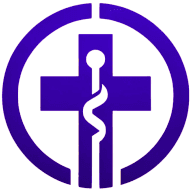How Healthcare Technology Facilitates Clinical Trials and Research
Healthcare technology is revolutionizing the landscape of clinical trials and medical research. Experts in the field are leveraging innovative tools like AI, telemedicine, and wearables to enhance data collection, improve inclusivity, and accelerate study timelines. From streamlining small-scale clinical studies to revolutionizing heart failure research through remote monitoring, these technological advancements are reshaping the future of healthcare innovation.
- Tech Reshapes Clinical Trials for Inclusivity
- AI and Telemedicine Accelerate Medical Research
- Carepatron Streamlines Small-Scale Clinical Studies
- Wearables Revolutionize Data Collection in Trials
- Remote Monitoring Enhances Heart Failure Research
- Digital Tech Boosts Clinical Trial Efficiency
- CPOE Systems Improve Medication Management Research
Tech Reshapes Clinical Trials for Inclusivity
Traditional clinical trials are no longer plagued by the list of challenges like slow recruitment, limited accessibility, and high dropout rates. I strongly believe that technology, today, can reshape such areas in healthcare, especially by uplifting the diverse and underserved population and advancing research.
Today's advanced tech solutions have implemented decentralized clinical trials (DCTs). It's a game-changer for clinical trial organizations as digitization of consent, virtual visits, and integration of wearable IoT devices have not only helped CROs reach patients who could have never participated in a traditional trial setting but also enabled them to advance their research.
I'd like to share about a project where we helped our client implement an AI-driven clinical trial platform. Our customized AI-powered trial recruitment engine could easily analyze structured and unstructured data to match patients to trials with precision and speed. We integrated the Predictive Analytics module to flag potential safety issues and protocol deviations in real time. Incorporation of these tools not only accelerated timelines but also led to safer and more adaptive studies. Our platform also included remote onboarding, monitoring using smart wearables, and simplified reporting. These results were impressive - a 40% increase in enrollment and a 58% improvement in patient retention.
I think integrating AI in clinical trials and medical research reduces the logistical and technical burden of participation and ensures more inclusivity in research. It brings us a step closer toward health equity. Looking ahead, I think it's critical to bridge the gap between clinical care and research. We must fully commit to developing solutions that are technologically advanced and patient-centric to meet the evolving needs of the healthcare industry.

AI and Telemedicine Accelerate Medical Research
Healthcare technology is transforming clinical trials to be more efficient, inclusive, and data-driven. Technology is bridging the gap between innovation and implementation in medical research, from digital patient recruitment platforms to AI-powered data analysis. It is no longer just a support system; it's the engine driving the next era of clinical discovery.
One of the most significant ways technology facilitates clinical trials is by expanding access and improving patient engagement. Traditional trials often struggle with enrollment due to geographical, socioeconomic, or logistical barriers. However, decentralized clinical trial platforms and telemedicine tools allow patients to participate from their homes, significantly broadening the recruitment pool. Wearable devices and mobile apps enable real-time monitoring of patient vitals and behaviors, providing a richer, continuous stream of data compared to intermittent hospital visits. This has the dual benefit of improving patient safety and data accuracy.
Artificial Intelligence (AI) and machine learning are also transforming trial design and data analysis. AI algorithms can now predict optimal patient cohorts by analyzing electronic health records (EHRs) and genetic data, ensuring better matching and more efficient outcomes. They can also detect adverse events earlier by flagging anomalies in patient-reported outcomes or physiological data streams, ultimately improving trial safety and reducing dropout rates.
One powerful example of successful technology integration in clinical research is the COVID-19 vaccine trials conducted by Moderna. The company utilized a cloud-based clinical development platform that integrated EHRs, remote monitoring tools, and AI-powered analytics to expedite participant recruitment and streamline data collection. What would traditionally take years was accomplished in under twelve months, setting a benchmark for how agile and technology-enabled trials can be when urgency demands it.
Moreover, some platforms digitize trial protocols and use predictive analytics to optimize trial site selection, improve patient adherence, and minimize protocol deviations.
Healthcare technology democratizes clinical trials, making them faster, fairer, and smarter. As we progress, the seamless integration of digital tools with human-centered design will be key to unlocking the full potential of clinical research for all.

Carepatron Streamlines Small-Scale Clinical Studies
While Carepatron isn't purpose-built for large-scale clinical trials, it does offer a set of features that can make a real difference for healthcare professionals involved in smaller trials, pilot studies, or observational research.
First, there's the ability to centralize participant data. Everything from consent forms to clinical notes, test results, and communications can live in one place. That means fewer systems to manage and less risk of something slipping through the cracks. For professionals running research alongside clinical work, that level of integration is a game changer.
Then there's automation. Scheduling follow-ups, sending reminders, completing progress notes—all of that can be streamlined. When clinicians or researchers don't have to think about admin, they can focus more on the quality of the trial and the experience of participants.
Carepatron also supports structured documentation, which is especially helpful for consistency in data collection. Templates and forms can be customized to match your trial protocols, making data analysis cleaner and easier later on. Plus, because it's HIPAA-compliant and cloud-based, it checks the boxes for data privacy and remote collaboration.
So while it may not be the go-to tool for large pharmaceutical trials, it absolutely empowers clinicians and researchers running smaller-scale studies. It gives them the structure, compliance, and efficiency they need to do their work without getting buried in admin. And in research, that clarity and consistency is everything.

Wearables Revolutionize Data Collection in Trials
Healthcare technology is empowering researchers to revolutionize how we approach clinical trials and medical research. By making processes more efficient, data-driven, and inclusive, from electronic health records (EHRs) that streamline patient identification to AI-powered analytics that uncover patterns across large datasets, technology enables faster, more accurate research with real-world applications.
One particularly exciting advancement is the use of remote monitoring tools and wearable devices in clinical trials. These technologies allow researchers to gather continuous, real-time health data—such as heart rate, sleep patterns, glucose levels, and oral health behaviors—without requiring patients to visit a research facility daily. This not only improves data accuracy but also increases patient participation and retention, especially in underserved or rural communities, thereby making clinical trials more inclusive.
A great example is how AI and digital imaging are now used in dental and periodontal research. In one case, software capable of analyzing intraoral scans was used to track gingival recession and bone density changes over time, providing researchers with standardized, measurable data without subjective interpretation. This has allowed faster approval and refinement of gum disease therapies and implant materials.
In short, healthcare technology is breaking down traditional research barriers and paving the way for more personalized, efficient, and inclusive innovation. This not only benefits patients and providers but also holds the promise of a more engaged and empowered patient population, shaping the future of healthcare.
Remote Monitoring Enhances Heart Failure Research
I've seen firsthand how healthcare technology can completely change the game when it comes to clinical trials—especially in terms of accessibility, efficiency, and patient engagement. One of the most impactful shifts I've noticed is the use of remote monitoring tools and decentralized trial platforms. I think when we reduce the need for patients to travel to specific trial sites, we open the door for more diverse participation, especially from people in rural or underserved areas.
A standout example I've followed closely is how wearable devices were used in heart failure research. Patients were given smartwatches that continuously monitored their vitals—heart rate, oxygen saturation, activity levels—and all that data was sent directly to researchers in real time. I think this kind of real-world, continuous data gives researchers a clearer picture than they'd ever get from periodic in-person visits.
Plus, the automation of data collection reduces error and improves compliance. That's huge. Trials become faster, more accurate, and more inclusive—and that advances medicine for everyone.
Please let me know if you will feature my submission because I would love to read the final article.
I hope this was useful and thanks for the opportunity.

Digital Tech Boosts Clinical Trial Efficiency
Medical technology is no longer a luxury; it has become a necessity. In clinical trials, it is revolutionizing the way we record data, enroll patients, and track progress. As a dentist, I have witnessed how digital technology makes care easier in our practice. The same applies to research, with improved accuracy, faster turnaround, and less downtime.
For example, one research team used remote monitoring technologies to monitor critical health readings in real-time. This allowed participants to stay at home while data was gathered by researchers in a consistent manner. This type of technology made clinic visits unnecessary, saving time for both scientists and patients. This setup provided faster and more reliable results. Electronic health records have also been found to accelerate patient enrollment by quickly identifying suitable participants, enhancing the overall efficiency of the trial process.
We apply digital technologies daily in our practice to enhance diagnostics and care plans. The same efficiency drives research forward. It translates into trials reaching underserved populations. It results in fewer missed follow-ups. It leads to improved science and better outcomes.
Technology eliminates lag. It empowers both patients and researchers. When implemented correctly, everyone benefits.
CPOE Systems Improve Medication Management Research
Healthcare technology can play an important role in advancing medical research and clinical trials. Tools like clinical decision support (CDS) and computerized patient order entry (CPOE) help standardize workflows, making data collection more accurate and consistent across different study sites. Reliable systems reduce errors, improve patient safety, and allow researchers to gather better information on treatments and outcomes. I've seen firsthand how digitizing workflows speeds up research without overwhelming clinicians, especially when alert fatigue is properly managed.
One example that stands out is the success of a fully implemented CPOE system that I read about last year. The system helped hospitals lower prescribing errors and improve medication management, which was critical for patient studies. An automatic deprescribing feature improved discontinuation of unnecessary medications by 78%, which made follow-up data cleaner and more useful for research teams. I remember working with a healthcare group that upgraded their electronic systems during a clinical trial. Their accuracy rates for medication orders improved so much that they finished patient enrollment ahead of schedule, something they hadn't done before.
If you're considering using technology to support clinical trials, focus on ease of use and error reduction. Ensure the system flags mistakes like wrong medication dates or duplicate orders before they cause problems. It's also a good idea to test the system with a small group of clinicians first to catch gaps early. I always tell clients that good technology should feel invisible—it should make the work smoother without adding steps. When you set it up correctly, technology can really speed up research and bring safer treatments to patients faster.




